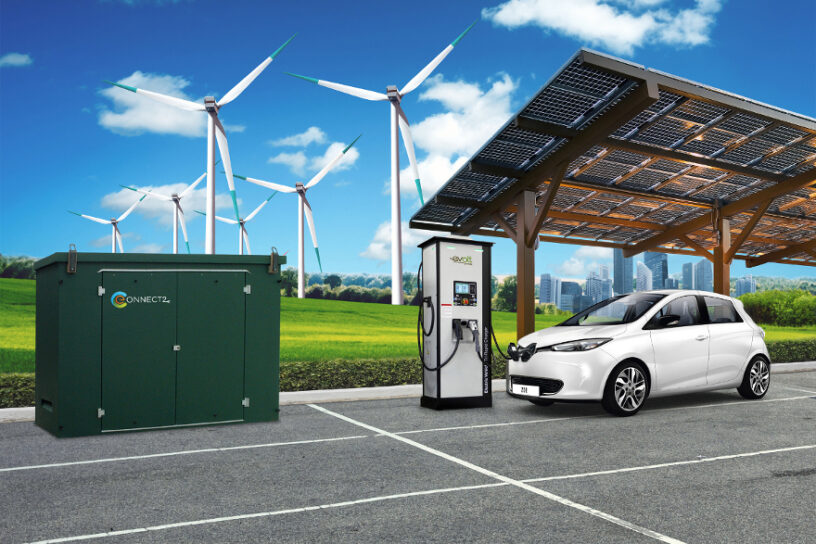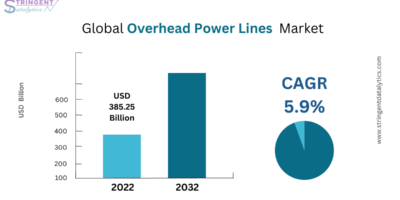The Global Second-life EV Battery Market size was estimated at USD 537.62 Million in 2023 and is expected to hit around USD 22368.68 Million by 2033, poised to grow at a compound annual growth rate (CAGR) of 45.2% from 2024 to 2033.
Introduction
The Second-life EV Battery Market represents a paradigm shift in the automotive and energy storage industries, offering a sustainable solution for repurposing electric vehicle (EV) batteries beyond their primary use. As EV adoption continues to surge globally, the market for second-life EV batteries is gaining traction, driven by the need for cost-effective energy storage solutions, grid stabilization, and circular economy principles. This comprehensive overview delves into the dynamics of the Second-life EV Battery Market, exploring opportunities, segmentation, assessment, and competitive strategies shaping this transformative sector.
Opportunities
The Second-life EV Battery Market presents a host of opportunities across various sectors:
- Energy Storage Systems: Repurposed EV batteries can be integrated into stationary energy storage systems, providing grid-scale storage solutions for renewable energy integration, peak shaving, and demand response programs.
- Residential Energy Storage: Second-life EV batteries offer homeowners affordable options for residential energy storage, enabling solar self-consumption, backup power during outages, and load shifting to reduce electricity costs.
- Commercial and Industrial Applications: Industries can leverage second-life EV batteries for onsite energy storage, power quality management, and demand charge reduction, enhancing operational efficiency and resilience.
- Electric Vehicle Charging Infrastructure: Deploying second-life EV batteries in charging stations improves charging infrastructure scalability, reduces grid impact, and enhances charging station economics, supporting EV adoption.
- Grid Stabilization and Ancillary Services: Aggregated fleets of second-life EV batteries can provide grid stabilization services, frequency regulation, and ancillary services to utilities, enhancing grid reliability and resilience.
Assessment
Assessing the Second-life EV Battery Market involves evaluating key factors:
- Battery Health and Performance: Assessing the state of health (SoH) and state of charge (SoC) of second-life EV batteries through diagnostic testing, modeling, and characterization to determine suitability for repurposing.
- Lifecycle Analysis: Conducting lifecycle assessments (LCAs) to evaluate the environmental impact, energy consumption, and carbon footprint associated with repurposing EV batteries compared to disposal or recycling.
- Safety and Reliability: Ensuring the safety and reliability of second-life EV batteries through rigorous testing, quality control measures, and safety standards compliance to mitigate risks of thermal runaway or performance degradation.
- Economic Viability: Analyzing the economic feasibility, payback periods, and return on investment (ROI) of repurposing EV batteries for various applications, considering factors such as capital costs, operating expenses, and revenue streams.
Receive the FREE Sample Report of Second-life EV Battery Market Research Insights @ https://stringentdatalytics.com/sample-request/second-life-ev-battery-market/13505/
Market Segmentations:
Global Second-life EV Battery Market: By Company
- Renault Group
- Mercedes-Benz Group
- Enel X S.r.l.
- Fortum
- BeePlanet Factory
- RWE
- BELECTRIC
Global Second-life EV Battery Market: By Type
- Lead-acid Batteries
- Nickel-cadmium Batteries
- Lithium Ion Battery
- Others
Global Second-life EV Battery Market: By Application
- Renewable Energy Storage
- Backup Power
- EV Charging
- Others
Regional Analysis of Global Second-life EV Battery Market
All the regional segmentation has been studied based on recent and future trends, and the market is forecasted throughout the prediction period. The countries covered in the regional analysis of the Global Second-life EV Battery market report are U.S., Canada, and Mexico in North America, Germany, France, U.K., Russia, Italy, Spain, Turkey, Netherlands, Switzerland, Belgium, and Rest of Europe in Europe, Singapore, Malaysia, Australia, Thailand, Indonesia, Philippines, China, Japan, India, South Korea, Rest of Asia-Pacific (APAC) in the Asia-Pacific (APAC), Saudi Arabia, U.A.E, South Africa, Egypt, Israel, Rest of Middle East and Africa (MEA) as a part of Middle East and Africa (MEA), and Argentina, Brazil, and Rest of South America as part of South America.
Click to Purchase Second life EVs Battery Market Research Report @ https://stringentdatalytics.com/purchase/second-life-ev-battery-market/13505/?license=single
Competitive Strategies
Competitive strategies in the Second-life EV Battery Market include:
- Technology Differentiation: Developing innovative battery management systems (BMS), diagnostic tools, and software platforms to optimize second-life battery performance, prolong lifespan, and maximize energy storage capacity.
- Partnerships and Collaborations: Forming strategic partnerships with OEMs, EV manufacturers, energy companies, and technology providers to access supply chains, secure raw materials, and leverage complementary expertise.
- Market Expansion: Expanding market presence and geographic reach through mergers and acquisitions, joint ventures, and market entry strategies targeting emerging economies and niche market segments.
- Vertical Integration: Vertical integration across the value chain, from battery collection and refurbishment to system integration and deployment, enables control over quality, cost, and value capture.
- Customer Education and Awareness: Educating consumers, businesses, and policymakers about the benefits of second-life EV batteries, addressing misconceptions, and promoting the environmental and economic value proposition.
- Regulatory Compliance and Standards: Adhering to regulatory requirements, safety standards, and environmental regulations governing the repurposing, transportation, and disposal of EV batteries to ensure compliance and mitigate liabilities.
Conclusion
The Second-life EV Battery Market holds immense potential to transform the energy landscape, offering sustainable solutions for energy storage, grid stabilization, and transportation electrification. By capitalizing on opportunities, understanding market segmentation, conducting thorough assessments, and implementing competitive strategies, stakeholders in the Second-life EV Battery Market can unlock value, drive innovation, and accelerate the transition to a circular economy and clean energy future.
FAQs (Frequently Asked Questions)
- What are Second-Life EVs Batteries? Second-life EV batteries are batteries that have been retired from electric vehicles but are repurposed for secondary applications, such as energy storage.
- How are Second-Life EVs Batteries repurposed? Repurposed EV batteries undergo testing, refurbishment, and recalibration processes to ensure their reliability and performance in secondary applications.
- What are the environmental benefits of repurposing EVs batteries? Repurposing EV batteries extends their lifespan, reduces electronic waste, and contributes to carbon emission reduction by enabling cleaner energy storage solutions.
- Which industries are driving the growth of the second-life EVs battery market? Automotive manufacturers, energy companies, and technology firms are among the key players driving innovation and investment in the second-life EV battery market.
- What role do technological advancements play in the second-life EVs battery market? Technological advancements in battery management systems, predictive analytics, and smart grid integration are enhancing the efficiency and reliability of repurposed EV batteries, driving market growth and adoption.
- What is the future outlook for the second-life EVs battery market? With ongoing advancements in battery technology and increasing focus on sustainability, the second-life EV battery market is poised for significant growth and innovation, offering vast opportunities for industry stakeholders.
About Stringent Datalytics
Stringent Datalytics offers both custom and syndicated market research reports. Custom market research reports are tailored to a specific client’s needs and requirements. These reports provide unique insights into a particular industry or market segment and can help businesses make informed decisions about their strategies and operations.
Syndicated market research reports, on the other hand, are pre-existing reports that are available for purchase by multiple clients. These reports are often produced on a regular basis, such as annually or quarterly, and cover a broad range of industries and market segments. Syndicated reports provide clients with insights into industry trends, market sizes, and competitive landscapes. By offering both custom and syndicated reports, Stringent Datalytics can provide clients with a range of market research solutions that can be customized to their specific needs.
Reach US
Stringent Datalytics
+1 346 666 6655
Social Channels:




Leave a Reply